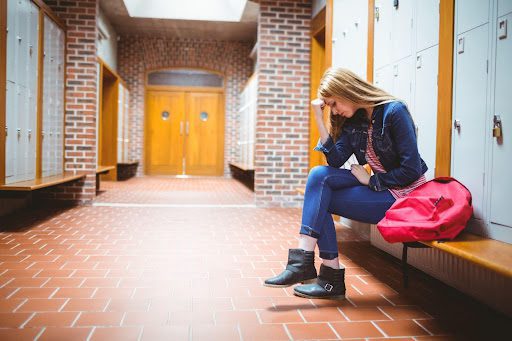Mental health in college students is in a growing state of crisis, as evidenced by some alarming student mental health statistics. Read on to review several key mental health stressors for college students, understand how school policies regarding suicide risk may be inadequate and unhelpful, and learn how college campuses are creating a greater variety of support resources for students on campus.

Transitioning to college is often challenging, and many students experience positive personal growth. But with added stressors in college, the pressures of maintaining academic achievement and handling significant change can become overwhelming. So how does mental health affect college students? The specific impact on individual students can vary, but these factors can leave a student feeling overwhelmed and trapped.
These are broad factors that many students face, especially those in their first year. Older adolescents deal with these issues as they mature, and college expectations bring added pressure, individuals can potentially adjust to these factors or develop a more adaptive response over time.
Students may have less influence over some of these factors, potentially none if they are personal characteristics or relate to their family of origin.
Present-day statistics regarding college students’ mental health can be concerning. A number of studies have indicated a steady rise in the percentage of college students with mental health issues over the last decade, with one study in particular finding that over 60% of college students in 2021 met the criteria for at least one mental health condition. Another annual survey showed that in 2021, 41% of college students reported having some type of depression, and 34% indicated having an anxiety disorder. These reports clearly indicate why mental health is important for college students.
Some students faced with significant loneliness or academic pressures can feel trapped. Unfortunately, students who struggle with depression may demonstrate suicidal behaviors, and their college institutions may respond in ways that raise controversy.
Some colleges require or strongly suggest long leaves of absence, often a full year of not being enrolled and staying away from campus. Schools state that these policies help students by allowing them to enter intensive treatment programs and get back on their feet. But students argue that these policies put the school’s public perception ahead of student mental health. Students staying away from campus for an entire year can become alienated and disconnected, and often feel like they would benefit from rejoining their college environment much sooner.
Highly competitive schools pride themselves on being close-knit communities of social connection and achievement. What does suicide do to that reputation? Rather than acknowledging the reality of mental health in the college student population, colleges may prevent suicide from becoming a blight on its record by simply removing at-risk students from school.
While schools like Harvard, Princeton, and Stanford have instituted these policies to ensure safety on campus, students who sink into depression or suicidal risk may argue that being banned from campus is more detrimental in the end. Those who fear getting expelled or removed from campus may simply bury or cover their pain. They may try to hold on until they no longer can. Some may leave campus abruptly or go home, but others may feel that taking their own life is the only solution.
Colleges are required to offer reasonable accommodations for documented disabilities, but this may not necessarily include long-term physical or mental health conditions. Significant mental health issues, such as depression or anxiety, are often chronic and recurring. When these conditions are well managed, students can often proceed through school with few disruptions. But when circumstances become challenging, intensified symptoms can cause severe distress and, potentially, put individuals at risk for suicide.
Schools with less flexibility and more extreme policies around suicidal behavior may leave students feeling cut off from essential social connections and struggling to find their sense of direction. As the landscape of mental health in college shifts, especially following the impact of the COVID-19 pandemic, these policies may be subject to greater scrutiny and development.
Student mental health needs have reached a tipping point for colleges nationwide. These are a few of the reasons demand is higher than ever for mental health support for students.
To fill these gaps, colleges are offering a greater variety of mental health interventions beyond traditional counseling sessions. Less formally structured options, such as peer support groups and self-directed activities, create more opportunities to access mental health support. These additional options may be a more appealing and less intimidating starting point for those who may not be ready for one-on-one counseling and can lessen the strain on counseling offices.

Untreated mental health conditions, especially those that increase the risk of suicide, can become debilitating and dangerous in a high-pressure environment such as college. With a better understanding of early identification and intervention with mental health issues, college students can recover with less risk of disrupting their collegiate experience.